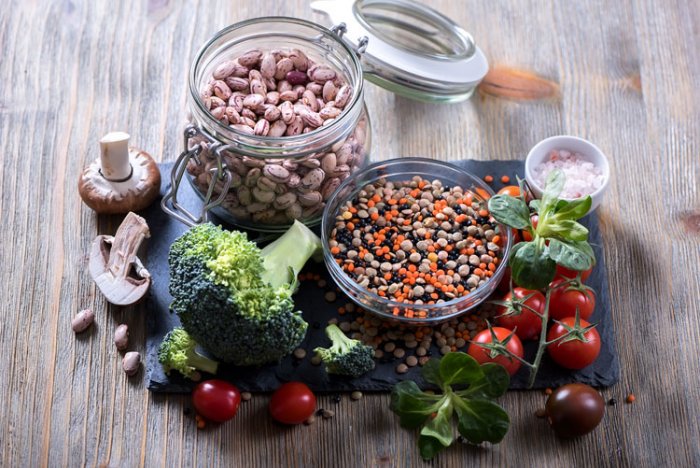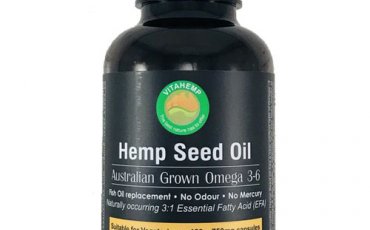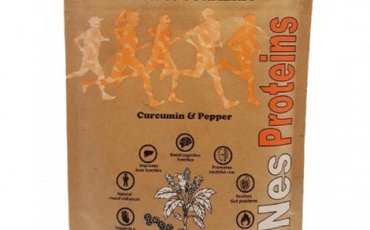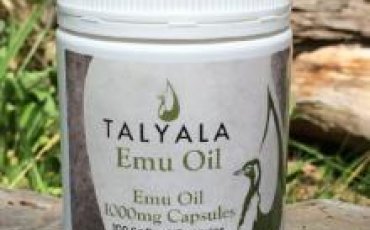Top 10 Vegan Sources of Protein

So what are the best sources of protein for those following a vegan diet?
Considered the building blocks of life, proteins break down into amino acids in the body allowing for cell growth and repair. Typically taking longer to digest than carbohydrates, proteins are by and large sourced from animal products in our modern day diets. Today, however, more and more people are turning to vegetarian and vegan lifestyles – otherwise known as plant based diets – and it is good to know that it is more than possible to get enough dietary protein without eating meat, eggs and dairy with their correspondingly high levels of saturated fats and cholesterol.
On average it is recommended that vegan males consume 63 grams of protein per day and women 52 grams although certain populations such as athletes and pregnant or breastfeeding women may need more. What is important, in a vegan diet, is to centre around fresh, organic, raw vegetables.
1. Spirulina
Not only is spirulina rich in protein (at around 65-71%) it is also one of nature's best sources of vital amino acids and minerals. These are quite easily assimilated by the body and amazingly it only takes two tablespoons of spirulina to provide a complete substitute for meat based protein in a meal.
2. Hemp Seeds
Not only do the fatty acids in hemp seeds assist in boosting your immune system, they are around 33% protein, providing 11 grams of protein for every 30 grams. This gives hemp seeds the highest amount of protein than any other nutritious seeds.
3. Quinoa
Probably the mother of all non-animal sources of protein, cooked quinoa contains approximately 8.14 grams of protein for every cup. Unique amongst all other plant based sources of protein, quinoa contains all 9 essential amino acids needed for optimal human health and function.
4. Buckwheat
Buckwheat is another of the complete proteins – containing all 9 essential amino acids required by the body. Not only does buckwheat contain all these amino acids, they are of the highest quality. Although the protein content of one cup of cooked buckwheat comes in at 5.7 grams, not nearly so much as amaranth or oats, the high quality of the protein it contains more than compensates for the relative levels. All in all buckwheat is one of the best sources of plant based protein available and an essential addition to any vegans diet.
5. Avocado
Coming as a surprise to many people, avocados have the highest protein content of any fruit anywhere. They provide all 18 essential amino acids required by the body to form complete proteins and, unlike animal proteins, are readily absorbed by the body.
6. Soybeans
Containing 36 grams of protein per 100 grams, soybeans are not only higher in proteins than other beans – the protein derived from them is of the highest quality – on par with that of meat and milk proteins.
7. Lentils
At 18 grams of protein per cup, lentils are a healthy addition to any vegan diet. It is important to be aware though that the protein in lentils is considered incomplete – meaning it lacks some of the required essential amino acids needed to build proteins in the body.
8. Tempeh
Healthier than tofu, tempeh is a fermented soy based protein – in fact it is the whole bean: protein, antioxidants and fibre. One cup of tempeh contains a whopping 31 grams of protein making it not only a tasty meat alternative, but also one of the healthiest foods around.
9. Kidney beans, Chickpeas, Pinto Beans, Lima Beans - cooked
Each containing around 15 grams per cup, these beans are considered comparable to meat in terms of the quantity and quality of their proteins. Where they really shine as part of a plant based diet is that their high fibre content allows them to be digested more slowly than meat and they are also low in sugar – preventing spikes in insulin in the bloodstream which causes hunger.
10. Tofu
One cup of firm tofu contains around 20 grams of protein. It is also considered a complete source of protein – containing all nine essential amino acids- however it is not considered as high quality as animal sources due to the proportion of amino acids comprising it. This is not a problem so long as your diet contains a well rounded variety of quality grains and vegetables.




